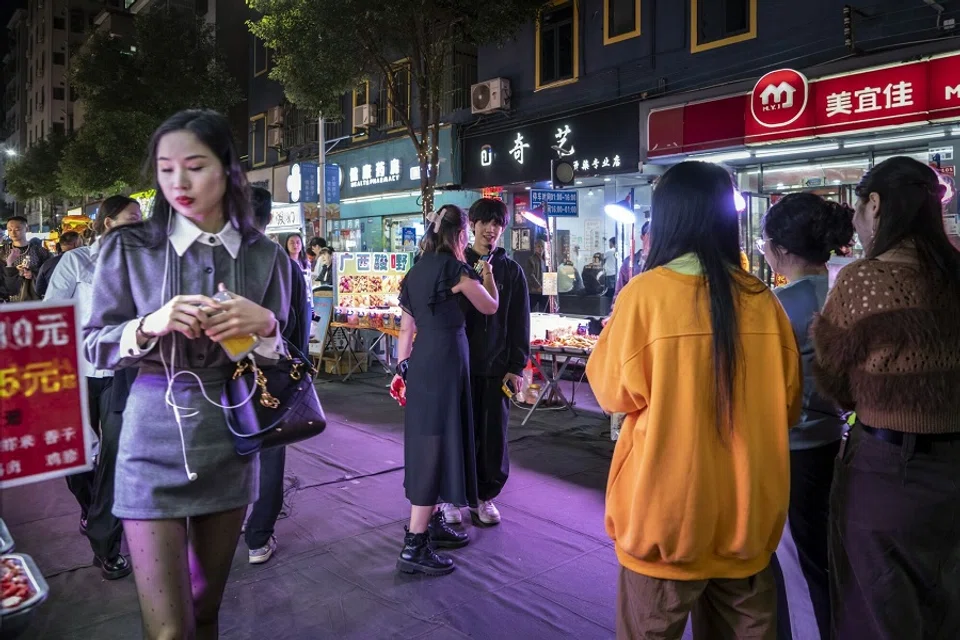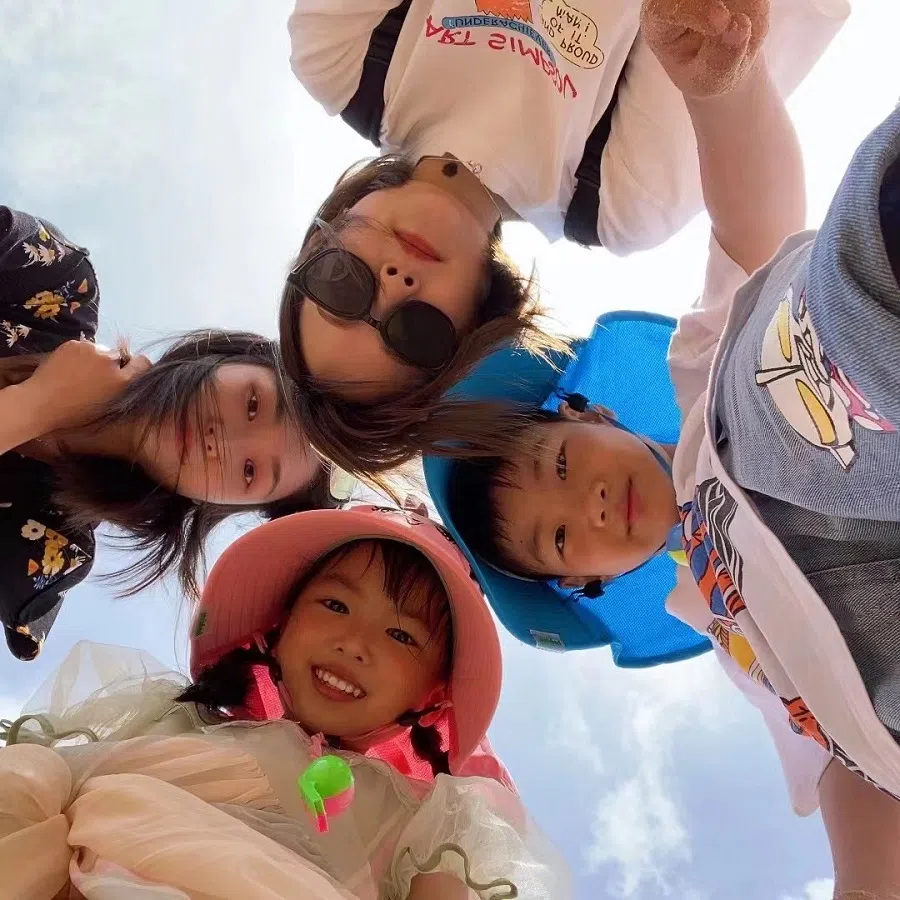China's youths seek divorce and retirement buddies in uncertain times
As youths in China come into their own, they are finding their own ways to make connections. The latest trend is seeking activity buddies, or dazi culture, which offers companionship based on common interests and needs.

Dazi (搭子, buddy) culture became popular among Chinese youths last year, with the younger generation finding dazi for anything under the sun from gaming, and eating to working out.
With China's changing social environment and values, some youths are bringing the pleasure-seeking dazi culture into more aspects of their lives, and dazi from "divorce buddies" to "retirement planning buddies" have sprung up. These groups not only satisfy the younger generation's need for individuality and self-fulfilment, but are also reshaping China's family structure and social culture.
After her divorce seven years ago, Li looked back on the past six months of dazi life, exclaiming, "This is much simpler and happier than married life..."
Li Huan is a single mother with a seven-year-old son. The 34-year-old native of Hefei, Anhui is a divorce buddy of fellow single mother Wang Jie.
Divorce buddies
Li told Lianhe Zaobao that she has been close friends with Wang for almost two decades. Last August, Wang and her child moved into Li's house, and she gives Li 2,000 RMB (US$281) a month for living expenses.

After her divorce seven years ago, Li looked back on the past six months of dazi life, exclaiming, "This is much simpler and happier than married life. We gossip and chit-chat about everything."
Li adds that she and Wang do not share property, and living together lowers their living expenses, on top of providing emotional value to each other. Dirty socks are no longer lying around the house and household chores are shared. I can see from the photographs and videos Li showed me that the three-bedroom, two-living room apartment is clean and cosy.
Divorce buddies such as Li are not uncommon in China - many netizens support this model, calling it the "ideal life".
A trend and an important existence
As dazi culture has become an internet buzzword in China, various groups searching for different types of buddies have sprung up on social media platforms, including divorce buddies.
Dazi is not a new term in China; card dazi (牌搭子) and tea dazi (茶搭子) have long existed in the Shanghai dialect. It refers to people who share similar interests and regularly come together to do the same thing.

Dazi is not a new term in China; card dazi (牌搭子) and tea dazi (茶搭子) have long existed in the Shanghai dialect. It refers to people who share similar interests and regularly come together to do the same thing.
Last December, Chinese state media People's Daily brought up a list of top ten Chinese buzzwords in 2023 by linguistics journal Yaowen Jiaozi (《咬文嚼字》), which gave dazi a new definition: a "precise companionship" and a "stress-free social interaction" that is "controlled within the scope of meeting specific needs".
Such short-term, simple and fast social interactions satisfy the psychological needs of China's new generation of youths. Just So Soul, a corporate think tank that mainly studies youths, found in a report released last June that nearly 90% of youths have heard about dazi socialising, while over 60% of youths clearly expressed their intention to find a dazi.
Dazi culture has seeped into every aspect of the younger generation's life. In some cases, dazi is considered an essential part of life and could even influence an individual's future planning.
... more Chinese youths are starting to plan ahead for their retirement since they don't want to get married and start a family. These youths are in search of "retirement planning buddies" on social media platforms...

Post-90s single mother Li Rui from Chongqing told Lianhe Zaobao that she has found herself dazis for fishing, and divorced-parent dazis for bringing the kids out. These buddies fulfil her need for companionship while providing her greater flexibility over her living arrangements and schedule.
Li Rui is satisfied with her current situation and said that she does not intend or find it necessary to marry again.
Li Huan admitted that while their 20-year friendship has made it easier for both her and Wang to live together, she believes divorce buddies will become more common in China because "the challenges of marriage, especially second marriages, are too difficult to overcome". Divorce buddies offer them simpler and more effective companionship, which is just enough.
Retiring together
In contrast to divorce buddies, more Chinese youths are starting to plan ahead for their retirement since they don't want to get married and start a family. These youths are in search of "retirement planning buddies" on social media platforms as they navigate a retirement model that best suits their needs.
A post-90s blogger who identifies as a firm DINK (double income, no kids) shared on Xiaohongshu earlier this year a crowdfunding plan to build a retirement community in the Yimeng Mountains area in Shandong. The idea was well-received by many netizens, with more than 300 people joining the blogger's group in about two weeks.
Some post-00s netizens said enthusiastically that they will continue to monitor the community and hope that it will be ready by the time they retire. A netizen exclaimed, "This is great. The next time my parents urge me to get married, I will show them this and say that I already have a plan B."
Values such as giving, responsibility and sacrifice, which were highly valued in the past, will be challenged, and the traditional view of the family will fade away. - Ai Jun, a Chinese sociologist

Chinese sociologist Ai Jun told Lianhe Zaobao that the younger generation is focusing more and more on themselves and their needs. Unlike their parents, they no longer think that getting married, buying a house and having children are necessary. Values such as giving, responsibility and sacrifice, which were highly valued in the past, will be challenged, and the traditional view of the family will fade away.
Tan Gangqiang, the head of a psychology consultation centre in Chongqing (重庆市协和心理顾问事务所), said in an interview that the reality of China's hyper-stable family structure will change; while dazi culture is just a way by which youths deal with the uncertain future, it is also a major trend that not only aligns with changing values but can also solve present problems.
Lee Tsung-Yi, a Taiwanese scholar and associate professor at Anhui University who has long observed mainland society and culture, also thinks that "uncertainty" is the reason behind the younger generation's enthusiasm in finding dazi.
Lee analysed that China's post-90s and post-00s generation grew up in a relatively good and stable environment. But now that they have entered society, both the global landscape and China's economic development are facing big changes, and these youths are not prepared to deal with long-term uncertainties. Finding dazi may be a way for them to cope with social pressures.
This article was first published in Lianhe Zaobao as "中国年轻人以"搭子文化"应对离婚养老".



![[Video] George Yeo: America’s deep pain — and why China won’t colonise](https://cassette.sphdigital.com.sg/image/thinkchina/15083e45d96c12390bdea6af2daf19fd9fcd875aa44a0f92796f34e3dad561cc)
![[Big read] When the Arctic opens, what happens to Singapore?](https://cassette.sphdigital.com.sg/image/thinkchina/da65edebca34645c711c55e83e9877109b3c53847ebb1305573974651df1d13a)
